
Christina Stead was an Australian novelist and short-story writer acclaimed for her satirical wit and penetrating psychological characterisations. Christina Stead was a committed Marxist, although she was never a member of the Communist Party. She spent much of her life outside Australia, although she returned before her death.

Eleanor Alice Hibbert was an English writer of historical romances. She was a prolific writer who published several books a year in different literary genres, each genre under a different pen name: Jean Plaidy for fictionalized history of European royalty and the three volumes of her history of the Spanish Inquisition, Victoria Holt for gothic romances, and Philippa Carr for a multi-generational family saga. She also wrote light romances, crime novels, murder mysteries and thrillers under pseudonyms Eleanor Burford, Elbur Ford, Kathleen Kellow, Anna Percival, and Ellalice Tate.
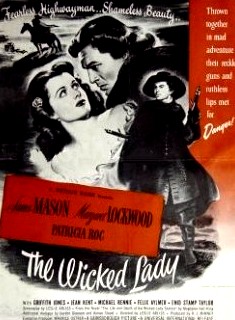
The Wicked Lady is a 1945 British costume drama film directed by Leslie Arliss and starring Margaret Lockwood in the title role as a nobleman's wife who becomes a highwaywoman for the excitement. The film had one of the largest audiences for a film of its period, 18.4 million.
Dorothy Auchterlonie was an English-born Australian academic, literary critic and poet.
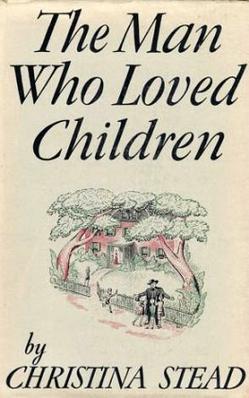
The Man Who Loved Children is a 1940 novel by Australian writer Christina Stead. It was not until a reissue edition in 1965, with an introduction by poet Randall Jarrell, that it found widespread critical acclaim and popularity. Time magazine included the novel in its TIME 100 Best English-language Novels from 1923 to 2005. The novel has been championed by novelists Robert Stone, Jonathan Franzen and Angela Carter. Carter believed Stead's other novels Cotters England; A Little Tea, A Little Chat; and For Love Alone to be as good, if not better than The Man Who Loved Children.
Merlinda Bobis is a contemporary Filipina-Australian writer and academic.

Margaret Isobel Fulton was a Scottish-born Australian food and cooking writer, journalist, author and commentator. She was the first of this genre of writers in Australia.
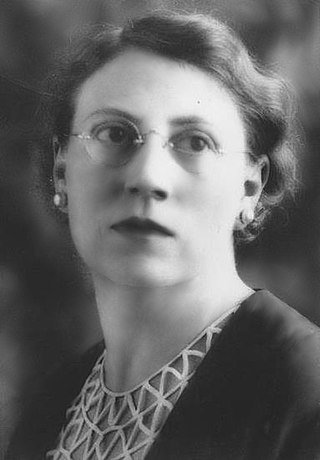
Marjorie Faith Barnard was an Australian novelist and short story writer, critic, historian and librarian. She went to school and university in Sydney, and then trained as a librarian. She was employed as a librarian for two periods in her life, but her main passion was writing.
M. Barnard Eldershaw was the pseudonym used by the twentieth-century Australian literary collaborators Marjorie Barnard (1897–1987) and Flora Eldershaw (1897–1956). In a collaboration that lasted two decades from the late 1920s to the late 1940s, they published 5 novels, 3 histories, a radio drama, a collection of short stories, and several collections of critical essays and lectures.

Trap (1966) is the first novel by Australian author Peter Mathers. It won the Miles Franklin Award for 1966.
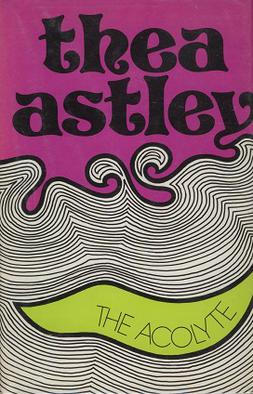
The Acolyte is a Miles Franklin Award-winning novel by Australian author Thea Astley first published in 1972.
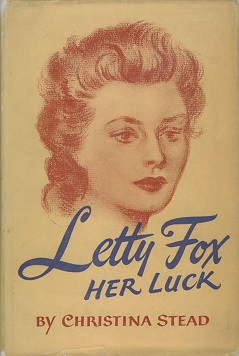
Letty Fox: Her Luck is Australian-born author Christina Stead’s sixth novel. It is a tribute to the drama of the urban environment and its role in socializing its occupants. Published in 1946, Stead wrote the lengthy Letty Fox after living in New York City for seven years.

I'm Dying Laughing: The Humourist is a novel by Christina Stead (1902–1983). It was published posthumously by Virago Press in 1986, edited and with a preface by Ron Geering.
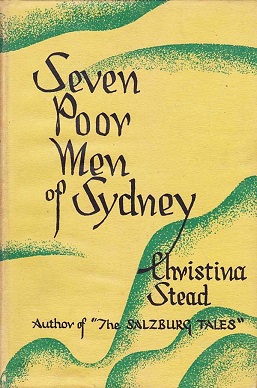
Seven Poor Men of Sydney (1934) is the first novel by Australian writer Christina Stead.

For Love Alone (1944) is a novel by Australian writer Christina Stead.

The Beauties and Furies (1936) is a novel by Australian writer Christina Stead.

A Little Tea, a Little Chat (1948) is a novel by Australian writer Christina Stead.
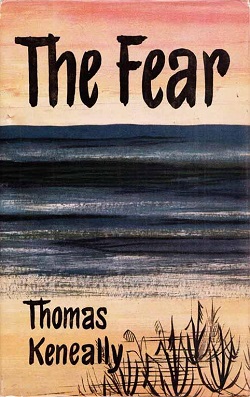
The Fear (1965) is a novel by Australian writer Thomas Keneally. The novel is also known by the title By the Line.
Gwen Kelly was an award-winning Australian novelist, short story writer and poet, whose fourth novel, Always Afternoon, was made into a television mini-series in 1988. She was considered by some to be one of the "major Australian writers", whose novels are "an intimate chronicling of women's lives and of our yesterdays", "probing stereotypical Australian attitudes and behaviour".
Lisa Gorton is an Australian poet, novelist, literary editor and essayist. She is the author of three award-winning poetry collections: Press Release, Hotel Hyperion, and Empirical. Her second novel, The Life of Houses, received the NSW Premier's People's Choice Award for Fiction and the Prime Minister's Literary Award for Fiction (shared). Gorton is also the editor of Black Inc's anthology Best Australian Poems 2013.















